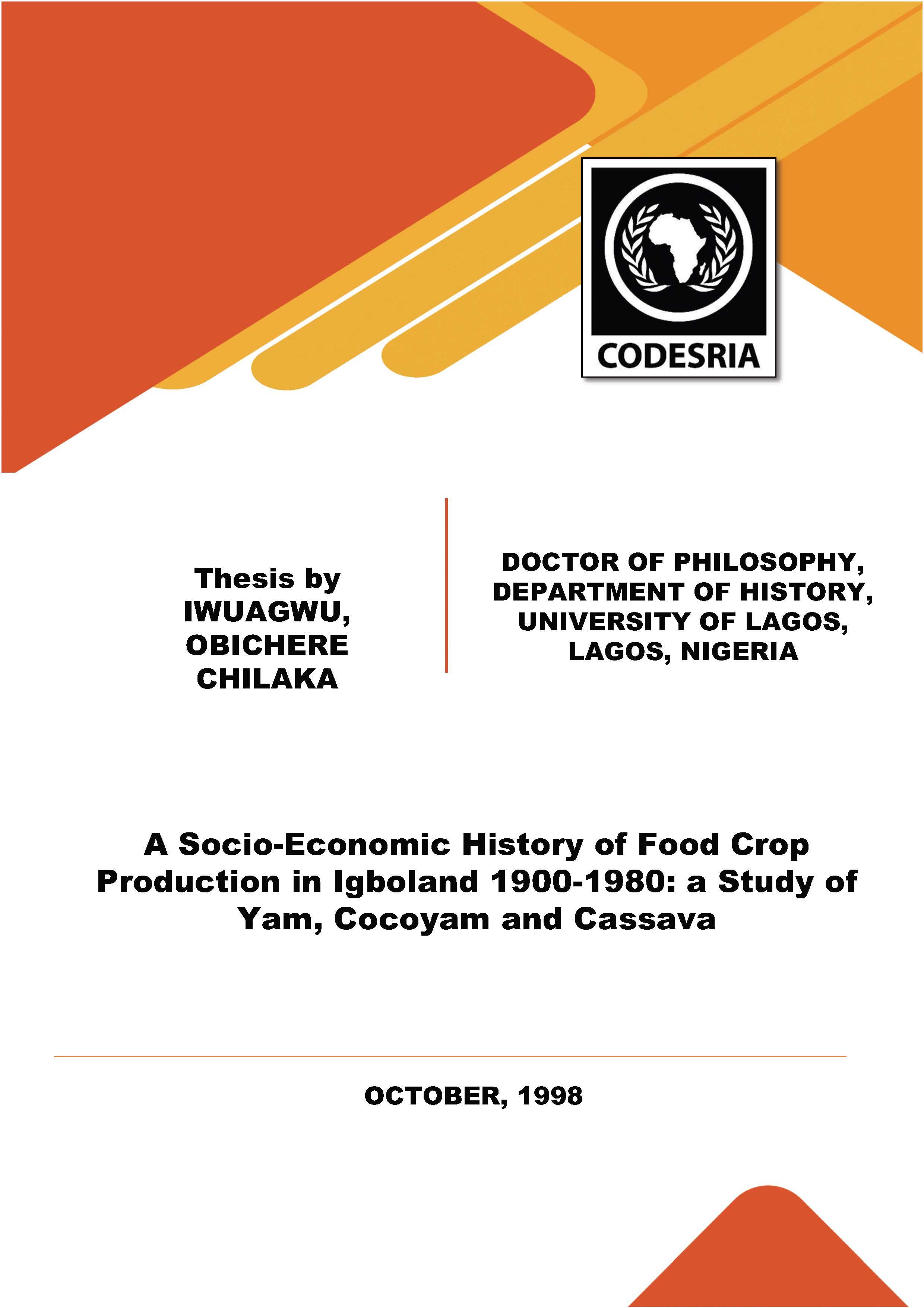A Socio-Economic History of Food Crop Production in Igboland 1900-1980: a Study of Yam, Cocoyam and Cassava
Keywords:
Plant production, food, yams, cassava, food economics, food production, economic history, social history, Igboland, NigeriaSynopsis
Food is an essential ingredient for living organisms. The standard of living in any environment is determined more than anything else, by the level of food substances available to. it. In Africa, a lot of substances are consumed. Using the Igbo of Eastern Nigeria, these food substances range from crops to animals. Also, the peoples food customs are integrated into their socio-cultural framework so much so that it is even ritualized. However, what is produced is inherently determined by the environment.
Hence, the important role of geographical factors in food production. Prior to British colonial rule, cases of food shortages in Igboland were not common. They occurred mainly in times of drought and other natural disasters. But, colonialism not only introduced new wants among the Igbo, it also brought new crops, which were in great demand in Europe. Thence, it became more attractive to go into export crop production, resulting in an unnecessary neglect of food crops. In fact, the hallmark of colonial policy in Igboland, indeed Nigeria, was the almost total neglect of crops like yam, cocoyam and cassava, on which the people heavily depended. And with this, came the beginning of persistent food shortages.
The post-independence administration continued the policies of its colonial predecessors. This may have been for want of foreign revenue badly needed for development projects; more so, as the economy was agriculture based. Similarly, the 30-
month Nigerian civil war, further worsened the food problem, since old policies were abandoned and the insecurity of the period was inauspicious for farming. Consequently, not a few people died from hunger and many more suffered from diseases arising from Moreover, the over-centralisation of · policies under the military and the introduction of unrealistic agricultural programmes, following the end of the Civil War further complicated the food problem. Therefore, policies like the National Accelerated Food Production Programme (NAFPP), the Operation Feed the Nation (OFN) and the Green Revolution, merely amounted to tackling the problem from the top, rather than from the root. Hence, it is argued that a more realistic way to tackle the food problem in Igboland, is by opening up the rural areas with more government infrastructure, introducing modern agricultural systems, reducing the prices of farm input and above all, by farmers being able to emphasise economic rather than socio-cultural factors in agricultural practice.
Downloads






